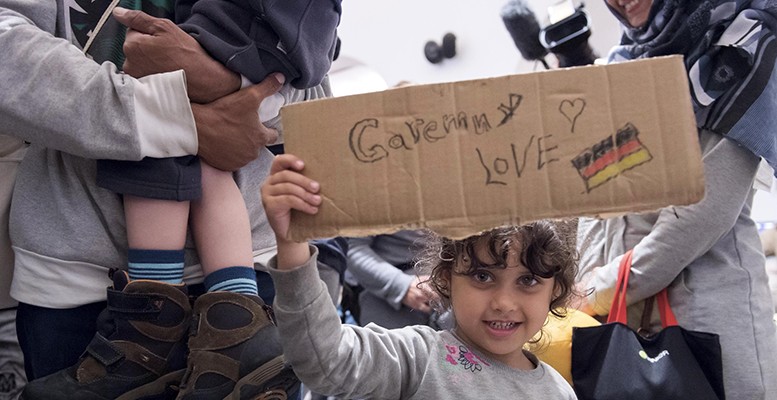The study from The International Rescue Committee (IRC) with support from Citi released a major report titled, Urban Refuge: How Cities Are Building Inclusive Communities. This examines the efforts of more than 20 cities across four continents – from New York to Amman, Kampala to Cox’s Bazaar, Los Angeles to Mogadishu – to integrate refugees and internally displaced persons, and highlights key learnings with the aim of providing cities as well as the private and humanitarian sectors a roadmap on how to address urban displacement and build inclusive communities. As said by David Miliband, president and CEO of the International Rescue Committee:
“At a time when nearly 60 percent of refugees live in urban settings, the role of cities in integrating displaced populations is critical now more than ever before.”
“As displaced populations seek safety and opportunity in urban areas, cities are having to respond, providing existing services and straining already resource-strapped systems. Despite these constraints, cities across the globe are innovating like never before, thinking through new policies, approaches and programs that serve displaced populations and build truly inclusive communities.”
In its analysis of city-level approaches to support displaced populations and build inclusive communities, the report cites three major takeaways: while cities have shown tremendous leadership so far, they can’t do it alone – support is needed from both the private and humanitarian sectors to ensure cities have the ability to build inclusive communities; although cities must acknowledge the unique experience of displaced populations, they can’t be viewed in a silo but as part of an inclusionary planning approach and finally information-sharing between cities is critical, allowing for scaling of ideas that are driving impact. According to Ed Skyler, Citi’s Executive Vice President for Global Public Affairs:
“As with many other challenges facing the world today, cities are on the front lines of the effort to integrate refugees. But cities cannot do it alone,”
“The private sector has an important role to play to help cities innovate, support targeted investments and share best practices. Through the Rescuing Futures program with the IRC – part of the Citi Foundation’s Pathways to Progress initiative – we’ve deployed funding, volunteers and our voice to support displaced individuals in cities, illustrating the vital role public-private partnerships can play in coming up with solutions to difficult challenges.”
The report highlights that many cities are already allocating resources to support displaced populations and bolster integration, and taking additional steps to do more. Of the 23 cities interviewed:
Nearly 60 percent have a dedicated budget, office or staff to support displaced populations
Nearly 60 percent have a long-term plan around displacement and/or migration
Four in five (83 percent) have prioritised partnerships with the international community while 74 percent are working with the private sector
While cities have been allocating existing resources to build communities inclusive of displaced populations, their arrival leads to great demands on existing city services and economies – including health, education, housing, and local job markets – and can worsen existing strains on these systems.
The 23 cities interviewed for this report are hosting over 5 million displaced – over seven percent of the world’s displaced – and while their needs may vary, cities cited the following resource needs to build more inclusive communities:
Over half (52 percent) cite access to financial resources as a critical need
Nearly one-third (30 percent) cite a need to have representation at both the national and international levels
One in four (26 percent) cite a need for employment programs
As cities develop approaches to build more inclusive communities, all cited positive benefits of hosting refugees and IDPs, ranging from the improvement of their city’s culture or the introduction of new skills to the labour market. Specifically,
Nearly half (48 percent) of cities cited an expansion of the local economy
43 percent of cities cited increased cultural diversity
40 percent of cities cited an increased workforce
The report also outlines key recommendations for cities and the private and humanitarian sectors. City governments must practice inclusive city planning and ensure they are diversifying their financing resources, expanding to include the private sector, development banks and humanitarian donors. The private sector must make greater efforts to invest in cities and displaced populations while taking a stand and advocating for these communities. Finally, the humanitarian sector needs to bolster its collaboration with city governments and deliver programs that not only respond to emergencies but serve as a resource to solve urban challenges exacerbated by displacement.





